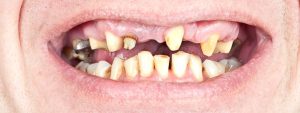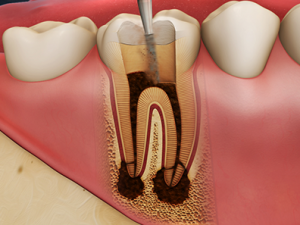It is well-known that your oral health affects your overall health. But did you know that dental health has correlations to Alzheimer’s disease, heart disease, and diabetes? In this series of blog posts, we’ll be delving into how oral health is linked to such extreme health conditions and what you can do about it.

How are Oral Health and Alzheimer’s Disease Related?
Throughout the past few years, increasing research has been conducted to find the correlation between dental health and cognitive disease. There is currently no conclusive evidence that oral health specifically causes Alzheimer’s disease. However, current research shows that there is a connection. Poor dental hygiene may in fact increase the risk or even worsen the condition of people diagnosed with Alzheimer’s disease.

Periodontal Inflammation
In the first blog of this series, periodontitis was explored as a contributing factor to increasing the risk of cardiovascular diseases. However, if you want a td;lr, chronic periodontal disease is prolonged and severe gum inflammation caused by bacterial infection. When these periodontal bacteria (or products released by the bacteria) penetrate the bloodstream to reach other parts of your body, this could:
- Increase levels of overall inflammation in the body (associated with greater mental decline in people with Alzheimer’s disease); and
- Carry a particular type of bacterium called Porphyromonas gingivalis into the brain.

In 2016, researchers from the University of Southampton monitored 59 people who suffered from dementia over a 6 month period. They discovered that those who had gum disease mentally declined six times faster than those who had good oral hygiene. In 2013, a study was conducted by the University of Central Lancashire that revealed Porphyromonas gingivalis bacteria were found in the brains of patients who had suffered from dementia when they were alive.

Regular invasive dental treatment (such as extractions, oral surgical operations, root canal treatment, and periodontal debridement) greatly increases the risk of bacteria entering the brain. This could trigger immune system responses such as a release of excess chemicals killing brain neurons. Experts recommend not putting yourself in a situation that would require regular invasive dental treatment in the first place.
The Cycle Continues…

The results of these studies have left the medical and dental community concluding that periodontal disease experienced early in one’s life may significantly impact one’s risk of contracting Alzheimer’s disease later on. There is still much research to be done but these early studies show that keeping up your dental hygiene is crucial.

People who suffer severe cognitive dysfunction may find it difficult, if not impossible, to stay on top of their oral hygiene regimen on their own. As dementia and Alzheimer’s disease progress, the sufferer may lose the ability, awareness, or interest to clean their teeth. When this happens, it worsens the state of the individual’s oral hygiene which in turn worsens their mental condition. Therefore, carers, family, and friends are instrumental in helping to break this cycle. In the next blog post, we will discuss exactly how to do so.

